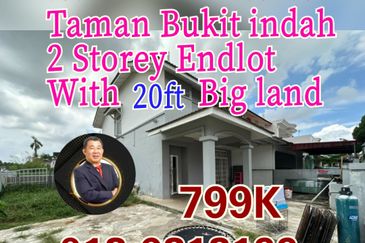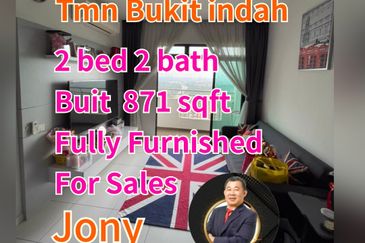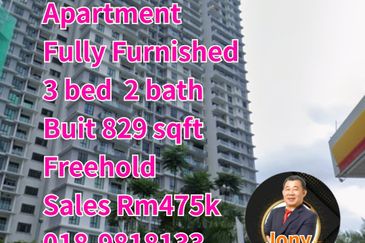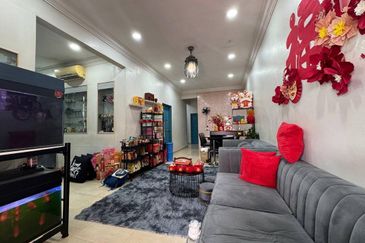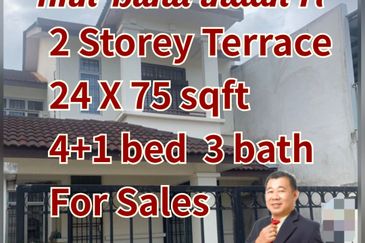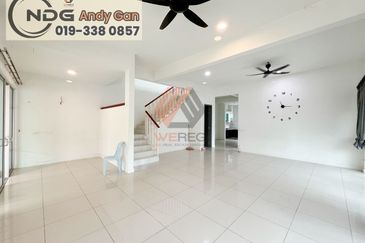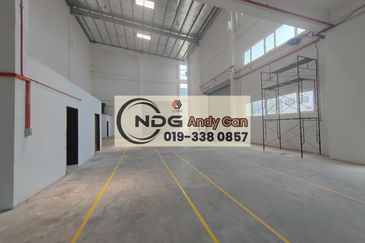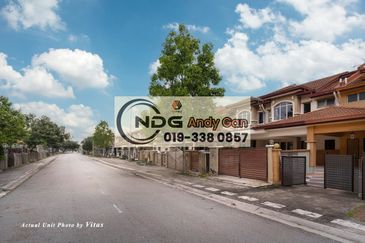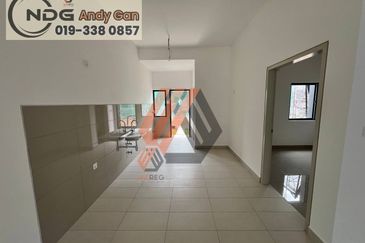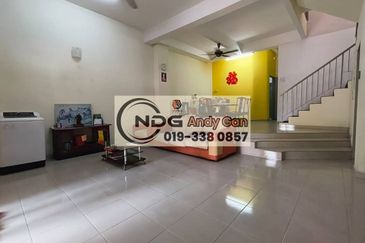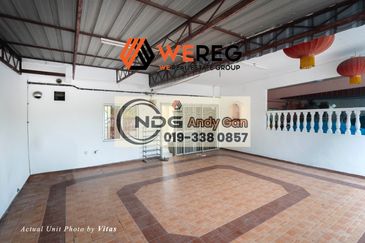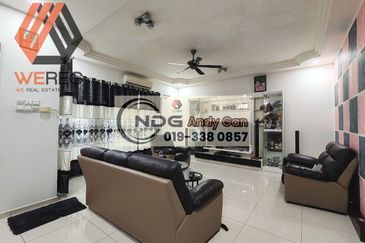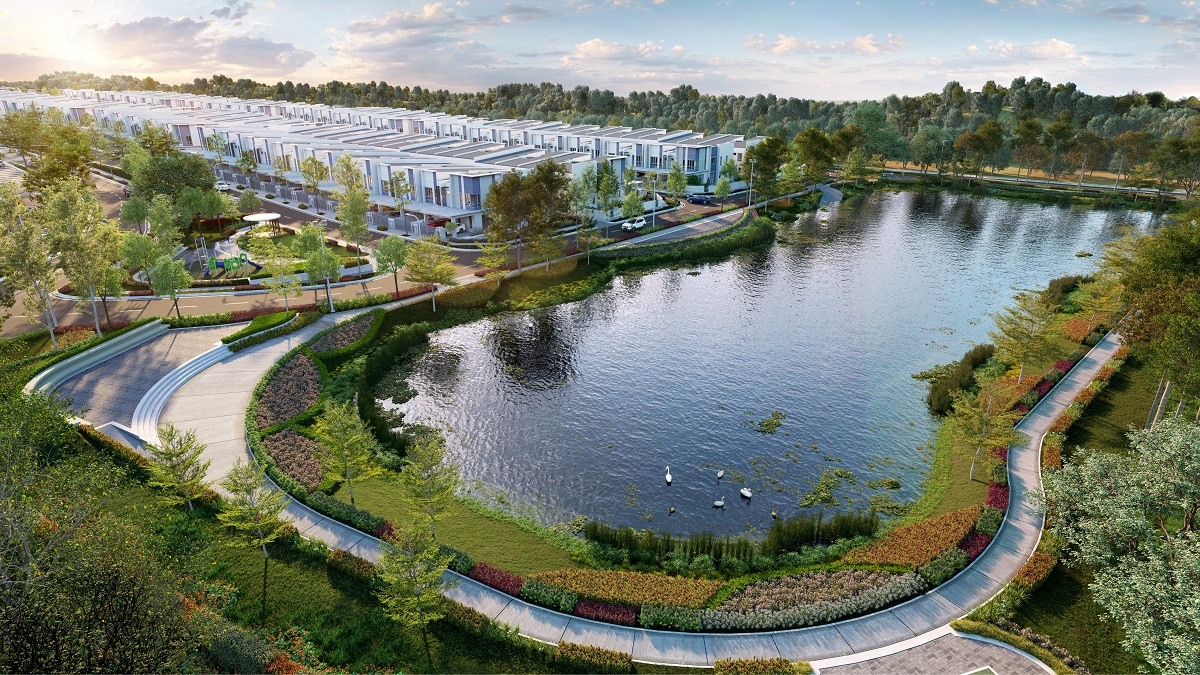KUALA LUMPUR: S P Setia Bhd CEO Tan Sri Liew Kee Sin said on Thursday, Dec 9 that the company will not be content with remaining at No 3 in terms of market capitalisation of listed Malaysian property companies, following the recent spate of mega mergers in the sector.
Liew told a press conference on Thursday, "A lot of reporters and analysts are writing that we will turn smaller... you think we will sit down and lie down and become small?
"Those who have been covering us for a long time should know what S P Setia stands for, and what we do. Yes the UEM Land-Sunrise merger and the MRCB-IJM Land merger is very good for the industry, to make the developers in the country stronger and bigger. It is very good," Liew said.
"So with these mergers going on, we will be number three — but only for now. You think we will stand still and be number three? No way. We will work our way up. But remember, in terms of profitability we are still the top developer in the country," he added.
S P Setia, had long been No 1 in terms of market capitalisation among its property peers, and the top pick in the sector among analysts and fund managers.
This year though, it slipped to the No 2 spot after UEM Land completed a large rights issue and saw its share price rally, although S P Setia still remained the sector's firm favourite.
However, it will soon slip further to No 3 after the recent proposed mergers of UEM Land Bhd-Sunrise Bhd and Malaysian Resources Corp Bhd (MRCB)-IJM Land Bhd.
At Thursday's closing prices, S P Setia has a market capitalisation of RM5.67 billion. This will place it behind the merged UEM Land-Sunrise's combined market capitalisation of RM11.03 billion; and the merged MRCB-IJM Land's RM6.3 billion.
"I don't think any developer now makes as much money as we do. I think our profit today is bigger than the combined UEM Land-Sunrise and MRCB-IJM Land. I'm sure that these two big companies will also improve, especially after the merger. Then S P Setia must also work even harder to make sure we catch up," Liew said.
Liew said the company will grow either organically or via mergers and acquisitions, stopping short of giving a definite answer as to whether any merger would also happen for S P Setia.
"I cannot comment on rumours. We will always be one of the top two developers in the country. Whether through mergers or not, we will always grow," Liew said.
Several press reports had earlier speculated that S P Setia may merge with Sime Darby Bhd's property division to grow and compete in the country's changing property landscape.
Those rumours partly stem from the fact that Permodalan Nasional Bhd (PNB) is a major shareholder in both Sime Darby and S P Setia, PNB (directly and through Skim Amanah Saham Bumiputera) has a total equity stake of 49.5% in Sime Darby and 27.9% in S P Setia.
Although PNB is S P Setia's largest shareholder, it is a passive investor. Liew, who has a 12% stake, runs the company and has built it into the successful property developer it is today.
Meanwhile, S P Setia is bullish on the property market's prospects moving forward and said that it is targeting at least RM3 billion in new sales for FY2011, which will set a new record for the company.
"Next year we will do RM3 billion sales — we will be the first developer ever in the country to do RM3 billion sales. No developer had done this before. To be one step ahead, we are targeting RM3 billion sales next year," Liew said.
"Next year it would be even a better year for S P Setia. We think that the property market is very stable, very buoyant and the market will do well next year. People keep buying our properties not only in Klang Valley, but also in Johor and in Penang," he added.
On Thursday, the property company announced its full-year results, which saw net profit for FY10 ended Oct 31 rising 47.1% to RM251.81 million from RM171.23 million in the previous year. This was achieved on the back of revenue increasing 24% to RM1.75 billion. Earnings per share came in at 24.77 sen.
As at Oct 31, net assets per share stood at RM2.15. The company has proposed a final dividend of 14 sen per share, bringing full-year dividends to 20 sen per share, or about 60.6% of its net profit. That also translates to a decent gross dividend yield of 3.6% at the current share price of RM5.58.
The rise in profitability was due to its property development projects in Klang Valley, Johor Bahru and Penang, as well as a gain from the disposal of Tesco Hypermarket at Bukit Indah, Johor.
"This has been the third consecutive year in the group's new sales record; and represents the seventh consecutive year since FY2004 that total group sales have exceeded the RM1 billion mark. The board is confident that the group has the capability and the capacity to grow the value of its new sales even further," S P Setia said in the notes to its financial statements.
For its outlook in the coming year, Liew said it expects competition to be keen as more developers gain confidence and launch new projects, which he says is a good sign of the health of the property market as a whole.
"For FY2011, we expect all our existing projects in Klang Valley, Johor Bahru and Penang to continue to do well. In addition, we will shortly in January or February be launching the KL Eco City, our integrated green commercial development opposite Mid Valley City," he said.
Liew said that the company was waiting for one more approval before it could launch the KL Eco City project. The KL Eco City project is a mixed development with offices, condominium and retail space on 24 acres of land, with gross development value (GDV) of RM6 billion.
"KL Eco City will have an integrated transportation link — the Light Rail Transit, KTM Komuter and the proposed Mass Rapid Transit stations will all be located inside the development," Liew said.
When asked on what would be the key driver of earnings in FY2011, Liew said that there is currently strong momentum in the property market, which is expected to roll over into the next year. He said that the imposition of the loan to value (LTV) ratio of 70% has so far had minimal impact on its sales.
"For example, last time, for every house, 10 people are interested in buying. But now after LTV was imposed, for every house, six people are interested in buying. So there is an impact, but there is still more than enough demand," Liew said.
However, Liew did not answer directly when asked if there was a property bubble in the making.
"You have to define what the definition of a bubble is. Do you know that costs have also risen 100%? So is there a bubble? The same house that we sold to you, we cannot sell to you at that price anymore. The cost of constructing that house had increased by 100%," Liew said.
"When people say that there may be a bubble, perhaps it is because income levels in Malaysia are not rising fast enough. The cost of living has gone up quite a bit, but the income levels are not catching up fast enough. That's probably the main reason more than anything else," he added.
Liew told a press conference on Thursday, "A lot of reporters and analysts are writing that we will turn smaller... you think we will sit down and lie down and become small?
"Those who have been covering us for a long time should know what S P Setia stands for, and what we do. Yes the UEM Land-Sunrise merger and the MRCB-IJM Land merger is very good for the industry, to make the developers in the country stronger and bigger. It is very good," Liew said.
"So with these mergers going on, we will be number three — but only for now. You think we will stand still and be number three? No way. We will work our way up. But remember, in terms of profitability we are still the top developer in the country," he added.
S P Setia, had long been No 1 in terms of market capitalisation among its property peers, and the top pick in the sector among analysts and fund managers.
This year though, it slipped to the No 2 spot after UEM Land completed a large rights issue and saw its share price rally, although S P Setia still remained the sector's firm favourite.
However, it will soon slip further to No 3 after the recent proposed mergers of UEM Land Bhd-Sunrise Bhd and Malaysian Resources Corp Bhd (MRCB)-IJM Land Bhd.
At Thursday's closing prices, S P Setia has a market capitalisation of RM5.67 billion. This will place it behind the merged UEM Land-Sunrise's combined market capitalisation of RM11.03 billion; and the merged MRCB-IJM Land's RM6.3 billion.
"I don't think any developer now makes as much money as we do. I think our profit today is bigger than the combined UEM Land-Sunrise and MRCB-IJM Land. I'm sure that these two big companies will also improve, especially after the merger. Then S P Setia must also work even harder to make sure we catch up," Liew said.
Liew said the company will grow either organically or via mergers and acquisitions, stopping short of giving a definite answer as to whether any merger would also happen for S P Setia.
"I cannot comment on rumours. We will always be one of the top two developers in the country. Whether through mergers or not, we will always grow," Liew said.
Several press reports had earlier speculated that S P Setia may merge with Sime Darby Bhd's property division to grow and compete in the country's changing property landscape.
Those rumours partly stem from the fact that Permodalan Nasional Bhd (PNB) is a major shareholder in both Sime Darby and S P Setia, PNB (directly and through Skim Amanah Saham Bumiputera) has a total equity stake of 49.5% in Sime Darby and 27.9% in S P Setia.
Although PNB is S P Setia's largest shareholder, it is a passive investor. Liew, who has a 12% stake, runs the company and has built it into the successful property developer it is today.
Meanwhile, S P Setia is bullish on the property market's prospects moving forward and said that it is targeting at least RM3 billion in new sales for FY2011, which will set a new record for the company.
"Next year we will do RM3 billion sales — we will be the first developer ever in the country to do RM3 billion sales. No developer had done this before. To be one step ahead, we are targeting RM3 billion sales next year," Liew said.
"Next year it would be even a better year for S P Setia. We think that the property market is very stable, very buoyant and the market will do well next year. People keep buying our properties not only in Klang Valley, but also in Johor and in Penang," he added.
On Thursday, the property company announced its full-year results, which saw net profit for FY10 ended Oct 31 rising 47.1% to RM251.81 million from RM171.23 million in the previous year. This was achieved on the back of revenue increasing 24% to RM1.75 billion. Earnings per share came in at 24.77 sen.
As at Oct 31, net assets per share stood at RM2.15. The company has proposed a final dividend of 14 sen per share, bringing full-year dividends to 20 sen per share, or about 60.6% of its net profit. That also translates to a decent gross dividend yield of 3.6% at the current share price of RM5.58.
The rise in profitability was due to its property development projects in Klang Valley, Johor Bahru and Penang, as well as a gain from the disposal of Tesco Hypermarket at Bukit Indah, Johor.
"This has been the third consecutive year in the group's new sales record; and represents the seventh consecutive year since FY2004 that total group sales have exceeded the RM1 billion mark. The board is confident that the group has the capability and the capacity to grow the value of its new sales even further," S P Setia said in the notes to its financial statements.
For its outlook in the coming year, Liew said it expects competition to be keen as more developers gain confidence and launch new projects, which he says is a good sign of the health of the property market as a whole.
"For FY2011, we expect all our existing projects in Klang Valley, Johor Bahru and Penang to continue to do well. In addition, we will shortly in January or February be launching the KL Eco City, our integrated green commercial development opposite Mid Valley City," he said.
Liew said that the company was waiting for one more approval before it could launch the KL Eco City project. The KL Eco City project is a mixed development with offices, condominium and retail space on 24 acres of land, with gross development value (GDV) of RM6 billion.
"KL Eco City will have an integrated transportation link — the Light Rail Transit, KTM Komuter and the proposed Mass Rapid Transit stations will all be located inside the development," Liew said.
When asked on what would be the key driver of earnings in FY2011, Liew said that there is currently strong momentum in the property market, which is expected to roll over into the next year. He said that the imposition of the loan to value (LTV) ratio of 70% has so far had minimal impact on its sales.
"For example, last time, for every house, 10 people are interested in buying. But now after LTV was imposed, for every house, six people are interested in buying. So there is an impact, but there is still more than enough demand," Liew said.
However, Liew did not answer directly when asked if there was a property bubble in the making.
"You have to define what the definition of a bubble is. Do you know that costs have also risen 100%? So is there a bubble? The same house that we sold to you, we cannot sell to you at that price anymore. The cost of constructing that house had increased by 100%," Liew said.
"When people say that there may be a bubble, perhaps it is because income levels in Malaysia are not rising fast enough. The cost of living has gone up quite a bit, but the income levels are not catching up fast enough. That's probably the main reason more than anything else," he added.
SHARE
TOP PICKS BY EDGEPROP
SALE
FEATURED
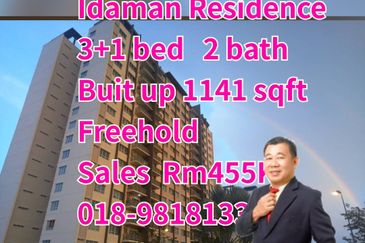
Idaman Residence
Iskandar Puteri (Nusajaya), Johor
RM 455,000
3 beds |
2 bath |
1141 sqft
SALE
FEATURED
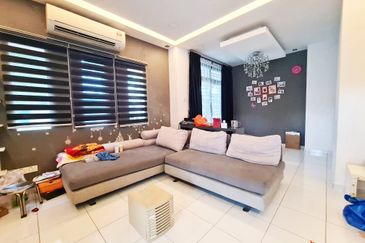
Taman Bukit Indah @ Iskandar Puteri
Johor Bahru, Johor
RM 888,000
3 beds |
2 bath |
1553 sqft
RENT
FEATURED
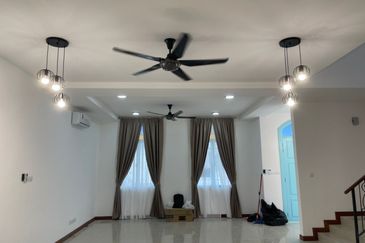
Peranakan Straits, Setia Eco Templer
Rawang, Selangor
RM 3,800
4 beds |
5 bath |
2500 sqft
SALE
FEATURED
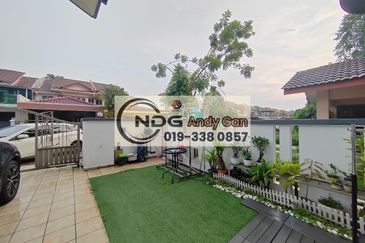
Bandar Botanic Kelang
Bandar Botanic/ Bandar Bukit Tinggi, Selangor
RM 798,000
4 beds |
3 bath |
2400 sqft
SALE
FEATURED
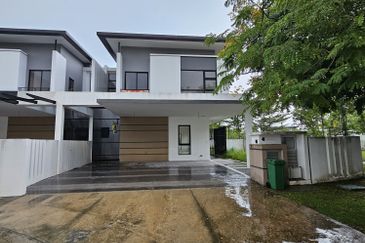
Cheria Residences, Tropicana Aman
Telok Panglima Garang, Selangor
RM 1,980,000
4 beds |
5 bath |
3730 sqft

